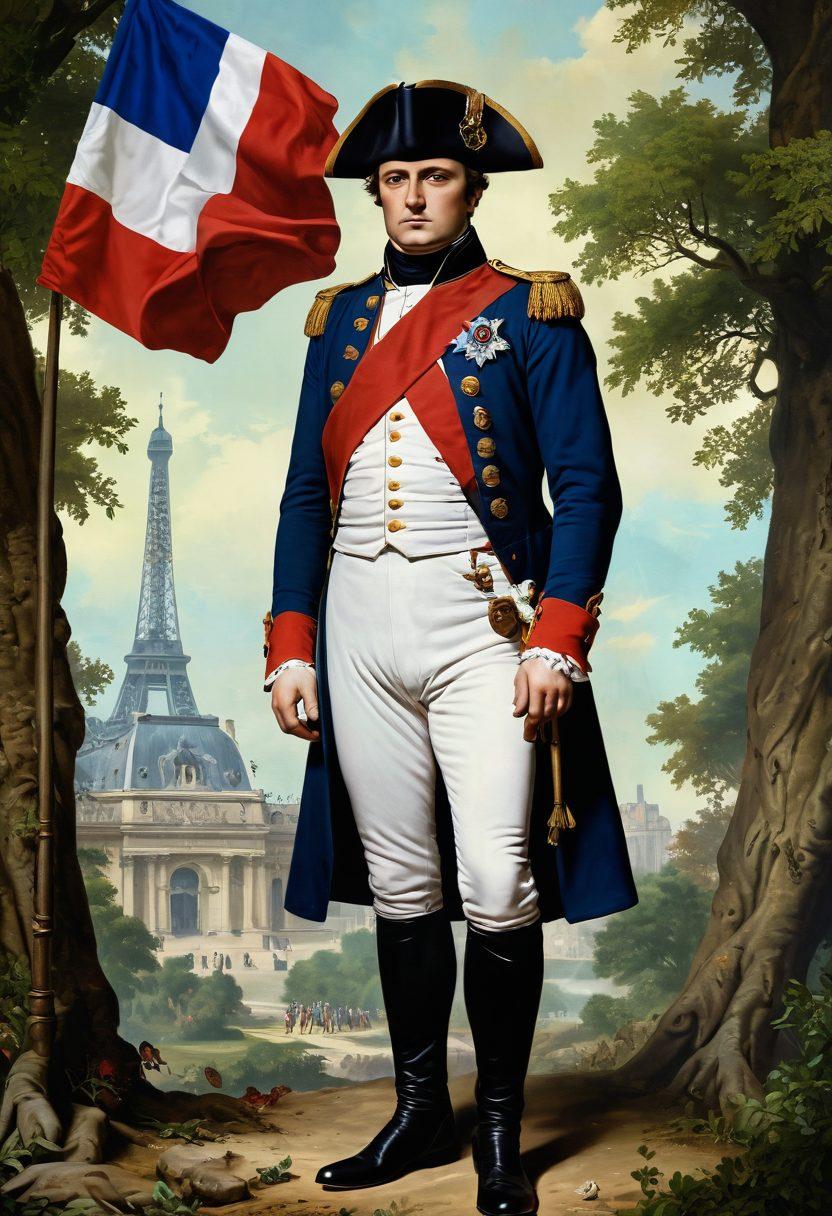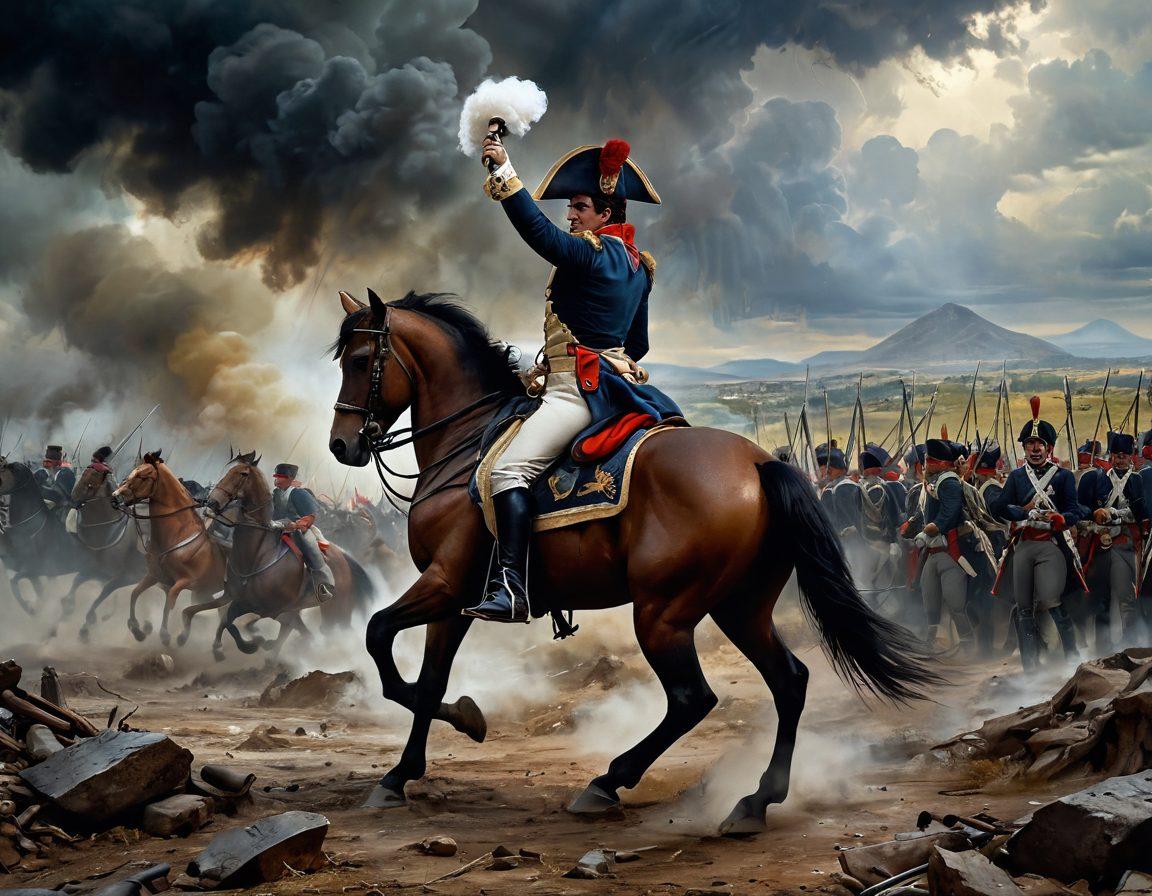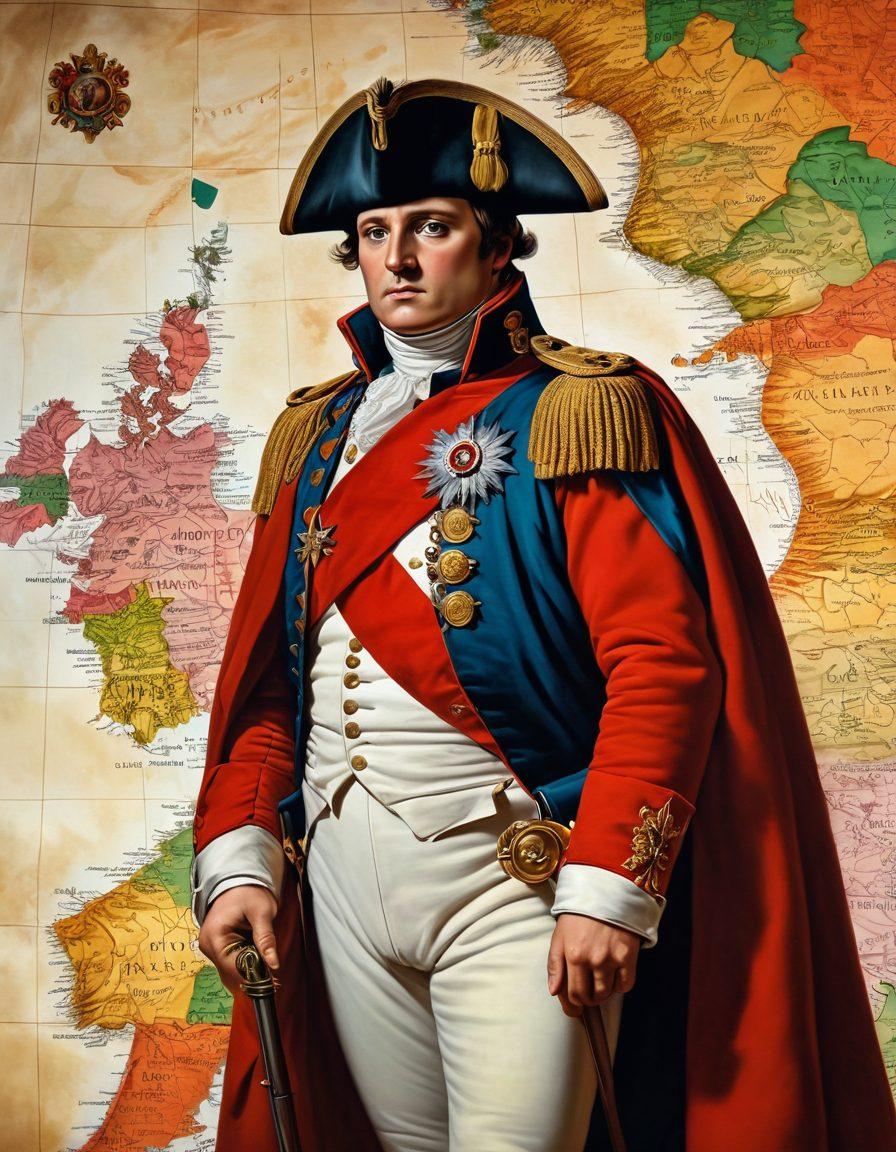Unraveling the Legacy of Napoleon: The Rise and Fall of a Revolutionary Leader
Napoleon Bonaparte is often viewed through a lens tinted by the grandeur of his military campaigns and his meteoric rise to power. However, tucked within the annals of French history lies an even more riveting tale—one of transformative reforms that reshaped not just France but the contours of European history. What really drove this revolutionary leader to not only conquer lands but also to fundamentally alter the structure of society? As we explore Napoleon's reforms and their lasting impact, we find that he was not merely a powerful ruler fighting battles, but a visionary who sought to forge a new world order.
Can you imagine a society where the law binds equally to everyone, where merit outshines privilege? Napoleon's reforms did just that through the Civil Code of 1804. Often referred to as the Napoleonic Code, it was a foundation upon which modern legal systems in many countries are built. As Napoleon famously stated, 'The law should be like death, which spares no one.' This principle not only modernized French law but served as an enduring model for the legal systems of nations across the globe. Could it be that one man's desire for justice became a landmark for democracy worldwide?
Education reform was another of Napoleon's significant accomplishments. He knew that a revolution could be sustained only through informed citizens. Thus, he established a centralized system of education that emphasized not just rote learning, but critical thinking and civic responsibility. Imagine the scale of his ambition! Napoleon's commitment to educational reform was unparalleled; he envisioned a society where every child, regardless of their background, could be molded into a good citizen. How many great leaders can we recall who placed such importance on education as a tool for societal advancement?
However, it wasn't just internal changes that defined Napoleon's legacy. His ambitious military campaigns altered political boundaries and reignited nationalistic fervor across Europe. While he was a military strategist par excellence, his victories often sowed seeds of resentment and resistance in the territories he conquered. Napoleon's battles forged new alliances and rivalries, inciting a mixture of admiration and animosity that continues to characterize discussions of his impact. Did his visions of glory inadvertently lead to his own exile?
As we reflect on Napoleon's legacy, it becomes evident that the man was a double-edged sword: a hero to some, a villain to others. His reforms, while transformative, were often overshadowed by the sheer scale of his ambition and the subsequent wars that decimated Europe. Napoleon Bonaparte's exile and eventual return only added to this fascinating narrative. What lessons can we learn from The rise and fall of such a historical figure? Perhaps, in considering the grand tapestry of his legacy, we might find that great leaders, while they wield immense power, face the inevitable tides of history that could sweep them away, regardless of their endeavors. Let us ponder: in our own lives, how do we harness power in the service of lasting change?
From Triumph to Exile: The Unforgettable Battles of Napoleon Bonaparte
Napoleon Bonaparte is a name that echoes through the halls of history, a culture of passion and genius in the realm of military strategy and leadership. From the bustling streets of Corsica to the grand palaces of Paris, his journey from a promising young officer to a powerful ruler captured the world's attention. With the heart of a conqueror, Napoleon’s path was fraught with the exhilaration of triumph and the agony of exile. But what made this French leader stand out among the great leaders of his time? Join me as we delve into the unforgettable battles of Napoleon that shaped not just a nation, but the course of European history itself.
In the prime of his power, Napoleon's campaigns became legendary, carving a narrative of victories that dazzled allies and swept aside enemies. The battle of Austerlitz, often hailed as Napoleon's greatest triumph, is a prime example. It is said that, in 1805, he told his troops, 'Soldiers! I am satisfied with you; France is satisfied with you!' This battle left the Third Coalition in shambles, reflecting not only his military genius but also the impactful reforms he instituted that transformed the French army into a formidable force. Can we truly understand the magnitude of such an undefeated streak without acknowledging the intricate strategies he employed?
However, with great power often comes great challenges. The famed Russian campaign of 1812 stands as a stark reminder of the fickle nature of fortune. Expectations of swift victory crumbled against the bitter cold and relentless terrain. As winter encroached, Napoleon's Grand Army began to dwindle; ultimately, it's said that he lost over 400,000 men. His statement, 'The strong man is the one who is able to intercept at will the communication between the senses and the mind,' attests to his recognition of military strategy as a nuanced dance rather than a mere formula. How can such a tale reflect the dynamics between power and responsibility in leadership today?
Napoleon's exile, particularly to the desolate island of Elba, marked a poignant turn in his saga. Imagine living as a former emperor stripped of your title, navigating life confined to the barren shores of a place that holds fewer memories of triumph than despair. Yet, even in exile, his spirit remained indomitable; upon his return, he sparked the Hundred Days campaign, a brief resurgence filled with hope and the essence of a revolutionary leader. As we contemplate his unforgettable battles, we must consider how such a man could rise and fall with the tides of ambition, fate, and the ever-changing landscape of loyalty.
Ultimately, Napoleon's legacy is a potent mixture of brilliance and cautionary tales, demonstrating that greatness can be as fleeting as it is powerful. His impact on French history and European history is undeniable; through his reforms, visionary leadership, and fierce determination, he has become an embodiment of what it means to lead with passion. As we reflect on this historical figure, we must ask ourselves: what lessons can we extract from Napoleon's life? In our pursuit of greatness, how do we balance the exhilarating climb with the humility to accept and learn from our setbacks? The unforgettable battles of Napoleon Bonaparte remind us that in the quest for legacy, we must master not only the art of warfare but also the art of resilience.
How Napoleon Reshaped European Politics and History for Generations
When we think of great leaders who shaped the course of history, names like Alexander, Julius Caesar, and Genghis Khan often come to mind. However, among these historical figures, none have cast a longer shadow over European politics than Napoleon Bonaparte. Born into a world still reeling from the French Revolution, this French leader transformed not just his own nation but the entire continent through his remarkable military campaigns and political reforms. Napoleon's rise from an ambitious army officer to the emperor of France instigated a seismic shift in European history, earning him a place among the most powerful rulers of all time. But how did this enigmatic figure manage to reshape Europe, and what enduring impact did he leave behind?
The tale of Napoleon is one of sheer determination and brilliance. With a flair for strategy, he ascended quickly through military ranks, demonstrating a tactical genius rarely seen. Perhaps it was his audacious words, "The strong man is the one who is able to intercept at will the communication between the senses and the mind," that set the tone for a leader who would not be easily forgotten. Amidst the chaos of the Revolutionary era, Napoleon's campaigns painted a vivid picture of ambition and vision as he sought to establish French dominance across Europe. His battle strategies were revolutionary, introducing innovative tactics that would later be studied by military strategists around the globe. Is it any wonder that his impact is still felt today?
However, Napoleon's journey was not solely defined by conquest and glory. His reign as emperor, marked by ambitious reforms, forever altered French history. The Napoleonic Code, a set of civil laws that aimed to provide structure and equality, remains influential even in modern legal systems. This set of reforms was not about power alone; it was about reshaping society and governance. Yet, the question lingered—were these changes enough to justify the consequences of his relentless pursuit of power? As the saying goes, "History does not repeat itself, but it often rhymes," and Napoleon's legacy echoes through time, reminding us of the thin line between heroism and tyranny.
Despite his monumental achievements, Napoleon's story is equally one of downfall. His ambitions ultimately led him to face a series of defeats, culminating in his infamous exile. What once glittered with the promise of empire, ended in the bleak isolation of Elba and later, Saint Helena. When we reflect on historical figures like Napoleon, we wrestle with the duality of their existence—the rise and fall of great leaders often mirrors the transient nature of power itself. As he famously remarked, "Courage isn't having the strength to go on—it is going on when you don't have strength." This captures the unrelenting spirit of a revolutionary leader grappling with the reality of his choices.
Napoleon's legacy is multifaceted and continues to provoke debate. Modern historians analyze his influence on European politics, weighing the cost of war against the reforms he implemented. For some, he is celebrated as a visionary for his efforts to improve social order and equality within the chaos of revolution, while for others, he remains a cautionary tale of ambition leading to ruin. What can we learn from the life of this charismatic leader? Perhaps, it's the understanding that power must be wielded wisely, and revolutions can yield both progress and peril. The winds of history blow differently, yet Napoleon Bonaparte stands as a lingering reminder of ambition's potential to shape destinies and rewrite the course of European history for generations to come.


